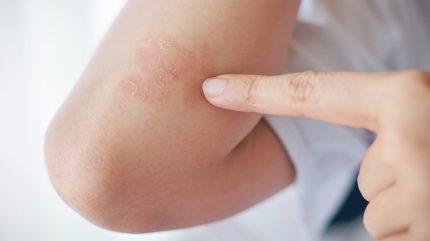
Artax Biopharma has announced the conclusion of subject recruitment in its Phase IIa clinical trial of AX-158, aimed at treating autoimmune diseases.
The trial is currently underway at multiple sites in the UK, focusing on individuals with mild to moderate plaque psoriasis.

Discover B2B Marketing That Performs
Combine business intelligence and editorial excellence to reach engaged professionals across 36 leading media platforms.
It enrolled 30 participants who were randomised into a 2:1 ratio to receive either a single dose of AX-158 or a placebo.
Following the treatment, which spans 28 days, there will be an additional 30-day safety follow-up period.
The company aims to release topline results by the fourth quarter of 2024.
AX-158 is claimed to have demonstrated significant cytokine modulation and the ability to modulate mixed lymphocyte reactions.

US Tariffs are shifting - will you react or anticipate?
Don’t let policy changes catch you off guard. Stay proactive with real-time data and expert analysis.
By GlobalDataIn murine models of self-antigen activation, specifically experimental autoimmune encephalomyelitis (EAE), the asset showed robust therapeutic efficacy and a prolonged pharmacodynamic effect, indicating sustained immune modulation.
Most notably, AX-158 did not cause immunosuppression in models with strong antigen stimulation.
The product exhibited substantial preclinical evidence of activity across various immune pathways, including Th2, Th17, and Th1/Th0, which indicates its potential applications within the autoimmune sector.
In November last year, Artax Biopharma obtained clinical trial authorisation (CTA) from the UK Medicines and Healthcare Products Regulatory Agency (MHRA) to assess AX-158 in a Phase IIa study in psoriasis patients.
Artax Biopharma chief medical officer Dr Scott Batty said: “We are thrilled to have completed patient recruitment for this trial and wish to thank all participating patients and healthcare professionals for their willingness to help us evaluate the potential of this novelNck modulator mechanism for autoimmune diseases.
“The data will include the safety and tolerability of AX-158 in psoriasis patients and clinical assessments, such as PASI and DLQI. However, we are most eager to see the changes in a wide panel of disease-relevant biomarkers, which will help contextualise the impact and cadence of the response to treating via this orthogonal approach to current autoimmune therapies.”



